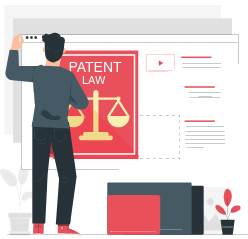The holy law of demand and supply, the greatest principle of capitalism, offers us the most critical insight to be happy and successful in life.
It shows us where the greatest opportunities are hidden.
Let me lay it down in simple words for you, without getting into technicalities.
Best opportunities = unresolved problems of clients + high-frequency demand + large ticket size
This is a very important equation to keep in mind when you are trying to figure out your career.
If you ever see anyone, lawyer or not, struggling to find clients, or find a job, somewhere they have not been following this holy law and therefore they must suffer.
Let’s understand how this works.
Most law graduates, law students, even most lawyers, unfortunately, do not think in terms of demand and supply. They are driven by status. They see which seniors are doing well in life, and they think by following those footsteps, they will be successful as well.
If you follow the footsteps of other people, who may have found success in a different time, you are probably looking at a problem that is not unresolved any more. It might be a very well resolved problem, with many competent service providers.
Hence, if you are still trying to build a practice by solving that exact same problem, you are violating the holy law of demand and supply.
Let me give you an example.
There was a time when the market really needed lawyers who could do trademark registration. There was a high demand, and it was an unresolved problem because while a lot of MNCs were entering India, and were keen to protect their brands, too few lawyers or IP law firms were in the market to do a competent job.
Due to the demand-supply gap, trademark registration itself was a very high paying work. A small law firm or an individual lawyer could charge INR 30,000 per mark per class, back in 2006 when I started studying law. It was substantial money, and IP law firms made a killing doing it, although it was simple work with little complications (compared to, say, patent registration work). But by the time I graduated, a bunch of companies like VakilSearch, IndiaFilings, etc started providing trademark registration services at one-tenth the price!
It is very hard for any law firm to charge those steep prices anymore. The bills for trademark registration have gone down.
However, registration is one thing. Trademark prosecution, handling official objections and oppositions, or infringement suits is quite another thing. Those services continue to pay very well, and more than ever before, because the gap of demand and supply prevails.
At other times, law graduates and lawyers make the cardinal mistake of following a fascination without considering whether there is sufficient market demand for a certain kind of work.
Is fashion law a viable career in India? Not today. I have no doubts that many years into the future this will become a thriving area of practice. However, right now, it could be hard to support yourself or find a job even, if you specialize narrowly in fashion law. Unless you are ready to be a pioneer, educate and develop a market, and spearhead the development of the entire market, and spend at least a decade trying to do so!
So it matters that the problems you are offering to solve for your clients are not only unresolved problems but that there is enough volume of such work.
And that is still not enough.
You need to see that the problem is serious enough that clients are willing to pay well to get that problem resolved.
In India, a lot of people are unable to withdraw PF amounts from their provident funds. It is an unresolved problem, to the extent that you cannot find too many lawyers offering such services as a price point that will work for the people who have such a problem. So it could be a great opportunity.
Is it a high-frequency problem? Absolutely, in 2017, the government reported that INR 64,000 crore was lying unclaimed in PF accounts! Way too many people have their money stuck in PF and somehow they do not know how to get it back.
But are those people willing to pay for this?
I am not so sure. You have to see. I have my doubts.
A lawyer who is competent can easily figure out a way out for the client and solve such a problem, but perhaps those people or inheritors of their estates who need this help are not willing to go to lawyers or pay them upfront for such a service.
Hence funds have been building up in the PF coffers, unclaimed, unreleased for decades!
So before selecting an area to specialize in, we must check what are the unresolved problems that remain today (vis-a-vis a problem that was unresolved 5 years back!) in large volumes that people are willing to pay good money for.
Let us see where such opportunities exist in IP law today.
Who are the clients with unresolved problems in large volumes? Provided those are valuable problems to solve for those clients, in a way that they are ready to pay for the same?
I have identified 3 types of clients with lots of unresolved pain like that. You can say that they are the dream clients of today’s IP law aspirants.
E-commerce
What is the fastest growing industry in India? Well, the heading above makes it easy for you to guess, I suppose.
If you had any doubts, check out the stats from IBEF. This industry is growing at an incredible velocity of 51% year on year!
- Fuelled by rising broadband and smartphone penetration, growth of 4G network, and the increasing purchasing power of Indian consumers, the Indian e-commerce market is expected to grow to US$ 200 billion by 2026!
- India’s internet economy is expected to double from US$ 125 billion as of April 2017 to US$ 250 billion by 2020, backed primarily by e-commerce.
- India’s e-commerce revenue is expected to jump from US$ 39 billion in 2017 to US$ 120 billion in 2020, growing at an annual rate of 51%, the highest in the world.
Here are the top legal headaches of the e-commerce industry:
- Cybersecurity
- Fraudulent transactions
- Statutory compliances, licenses and permits
- Customer data protection
- Brand protection, fake goods
- Enforcement of e-contracts
- Global tax compliance, import-export, and customs regime
- Regulation of online advertising
- Investment regulations, FDI regulations
- Logistics and warehousing contracts and compliances
Let’s see what keeps them busy from an IP law perspective:
- Cross border trademark and copyright protection
- Gray market, fake and counterfeit goods
- Liability of platforms and intermediaries and good faith actions
- Registration of new e-commerce brands as there is a brand explosion
- Trademark opposition work
- Trademark infringement notices and suits
- Passing off suits
- Action to protect trade secrets and against unfair competition
- Copyright infringement action to protect content
Are these unresolved pain points?
Absolutely yes. While there are plenty of efficient high-quality law firms catering to investment in e-commerce, even for startups and SMEs, when it comes to compliances, cross-border or domestic trademark registration, enforcement and prosecution services, or even content protection through action against copyright infringement, there are not enough focused or scalable service providers. Quality of services, availability, and pricing can vary wildly depending on the time and place.
The volume is undeniable here, with millions of SMEs rushing to go online post-pandemic. Demand for brand registration and protection has been steadily rising and will continue to rise. These are also very critical for the success of online businesses, and willingness to pay is not a problem for high-quality legal service providers.
Media companies
Opportunities usually arise in fast-growing, rapidly diversifying industries, especially the ones that are growing so fast that regulation is finding it hard to keep up with them.
Let’s take a look at how fast the media and entertainment industry is growing in India:
- It is expected that the M&E industry will grow at a CAGR of 13.5% during FY19–FY24. It is expected to reach around Rs 3.1 lakh crore (US$ 43.93 billion) by 2024.
- FDI inflow in the sector for FY20 stood at US$ 9.20 billion as per data released by the Department for Promotion of Industry and Internal Trade.
- India’s advertisement market is projected to grow 10.62% y-o-y to Rs 85,250 crore (US$ 12.06 billion) till 2021.
- Digital advertising has emerged as the third-largest advertising medium in India. It generated revenue worth Rs 15,467 crore (US$ 2.21 billion) in 2019. Digital will contribute 29% of the ad market size by 2021, with a huge headroom to grow.
- The online video market in India is estimated to reach US$ 4 billion by 2025, with subscription services contributing more than US$ 1.5 billion and advertising adding US$ 2.5 billion.
Digital media is also an industry that is the fastest-growing segment within the sector. What is causing this exponential growth and why can we be sure that this growth will continue in the years to come? Here are the rock-solid factors:
- Expansion of mobile internet access and growing connection speeds
- The increasing number of mobile and streaming devices
- Steady growth in investment high performing and addictive content
- Increasing prosperity in Asian countries including India which led to an explosion of demand for knowledge, culture, and entertainment
- Digital Media is very RoI-driven, highly efficient, easily accessible, and has the lowest cost of distribution
As we see increasing economic growth, prosperity, and internet penetration in India, the media and entertainment industry is set to grow at a breakneck speed.
So it should be clear to you at this point that this is one of the fastest-growing industries with a very bright future.
But what are the unresolved pain points that relate to IP law?
Brand protection, online reputation management, IP infringement, piracy remain some of the biggest concerns of this industry.
Lack of access to specialized contract drafting and negotiation services at a reasonable price point is also another pain point.
The work is in three buckets – one is IP creation and protection, then IP rights enforcement and preventing unauthorized use or abuse of the IP, and finally the third bucket is the monetization of IP.
Given that the entire industry really depends on IP to sustain itself, and IP is critical to its existence, there is absolutely no difficulty for IP lawyers to charge a premium for their work.
Here is the area of focus if you want to serve this industry:
- Registration of trademark and copyright
- Trademark prosecution
- Trademark and copyright infringement litigation
- Licensing, franchising, merchandising contracts
- Media contracts related to production, distribution, financing of media projects and joint ventures, IP due diligence during investments and acquisition
- Online reputation management
3 types of Tech companies
Tech is such a big sector today that it is hard to put them all together in the same basket. Still, for the purpose of this article, it makes sense to bunch them together because their IP law needs are very similar.
We can still create a few buckets, such as deep tech, consumer tech and enterprise tech.
Deep tech companies are leading this category. What is deep tech? Here is what Wikipedia says:
…typically startup company, with the expressed objective of providing technology solutions based on substantial scientific or engineering challenges. They present challenges requiring lengthy research and development, and large capital investment before successful commercialization. The primary risk in a deep tech or hard tech company is technical risk, while market risk is often overlooked due to the potential value of the solution to society. The underlying scientific or engineering problems being solved by deep tech and hard tech companies generate valuable intellectual property and are hard to reproduce.
It is obvious that these companies deal a lot with patents. From patent applications to patent monetizing, and IP strategy is key to the eventual commercial success of these companies.
A good example of deep tech companies will be Tesla, which managed to disrupt the automobile industry, or SpaceX, which is a space tech company.
Consumer technology companies are leading the world of technology today, and companies like Google, Amazon, Facebook, or PayTM and Flipkart in India belong to this category.
These companies can also have a formidable patent portfolio, but apart from that, they are also in the business of content and brands, which means they also have a lot of copyright and trademark-related work.
Think of Google and the thousands of products it has launched or acquired over the years. It owns a formidable trademark and copyright portfolio, which is protected by an army of IP lawyers.
You can also think of Amazon, eBay, or Flipkart, and how they are dealing with millions of products in which either these companies themselves in many cases, and in other cases other people own trademark, and they get sued for trademark violation if anyone manages to sell any unauthorized or counterfeit goods or even copyright infringement in a brochure!
Apart from giant platforms, consumer tech companies include companies selling hardware such as mobile phones or gaming consoles.
There are other issues like fake reviews and online reputation management too.
However, international transactions and cross-border enforcement of IP is the biggest headache of consumer tech companies around the world.
Finally, there are enterprise tech companies. Microsoft, Adobe, Freshworks, Zoom, Zoho, etc are enterprise tech companies. As businesses and entire workforces were forced to go digital overnight post-pandemic, enterprise tech has done very well in 2020. However, even before that, this sector had produced hundreds of unicorn companies, especially in form of SaaS companies. Zoom, for example, is a SaaS company.
IP law challenges for these companies include cross border IP protection apart from usual registration, aggressive IP infringement suits, IP strategy work.
Here are some common issues that tech companies need their lawyers to help them with
(I hope this will give you some idea about how much work IP lawyers have to do for tech companies):
- What are some of the IPs that should be registered and possibly monetized?
- In what new ways can we monetize our existing IP?
- What are the most tax-efficient, highly enforceable models for monetizing our IP?
- What steps should be taken by the organization to effectively manage and develop the patent portfolio?
- How can our IP portfolio stay ahead of the competition?
- What technology can we in-license, out-license, or cross-license?
- Where can our organization increase research and development investment to build an effective patent portfolio?
- Are there any competitors whose IP poses a threat to our business?
- When to engage in defensive publishing of our research?
- Should we invest in certain startups, or pursue an M&A strategy in light of IP concerns?
- Are we doing enough to preserve the value of our IP portfolio? Who is infringing or abusing our IP?
- Are we doing enough to protect our IP or do we need to increase our budget?
- Would we be able to enforce our IP in that geographical market? Or should we just stay away?
- What are the geographies where we should register our IP? How much will it cost and how long will it take?
- How to fight back against patent trolls and deal with strategies like ‘picket-fencing’ where competitors try to get patents around our prized patents trying to erode the value of our prized patent?
- What would be our IP enforcement strategy? If a deep-pocketed competitor infringes, what kind of enforcement cost and timeline are we looking at?
- How can we prevent counterfeiting on online auction platforms like e-bay or TaoBao or even Facebook and telegram groups?
- How should we respond to infringements and how can we recover damages?
- Will our new product or brand end up violating someone else’s IP rights?
- Have we properly optimized our patent or trademark registration strategy? In corporations based in the USA, more than 50% of patents are abandoned after 10 years! Given the cost involved, questions may arise as to whether such patents should have been pursued in the first place.
- Can we reduce spending on outside counsel by zeroing in on redundancies and establish an in-house patent and trademark prosecution practice?
Bonus opportunity: biotech & pharma companies
Biotech and pharma companies are also another kind of deep tech company, and they have similar issues like deep tech companies.
However, when I spoke to some IP lawyers about which industries are most IP heavy, everyone mentioned biotech and pharma in the same breath before any other industry.
The biotechnology industry in India, comprising about 800 companies, is valued at US$ 11 billion and is growing at a Compound Annual Growth Rate (CAGR) of 20 percent.
This is a very deep market with very little specialized legal attention. If you are a young IP lawyer, and you focus only on biotech for the next 20 years, you will be very successful simply due to an absolute lack of competition. Can you name 5 big law firms who have biotech focused specialized teams or partners? I spoke to around 12 top IP lawyers today, and everyone admitted that there are present and obvious talent and focus gaps in the market when it comes to biotech.
Pharma has a similar situation, with too few boutique service providers catering to a giant industry, and no law firm successfully building a well known pharma practice despite the massive global rise of the Indian healthcare sector and generic pharma companies.
You will not regret it if you focus on these sectors with huge possibilities and terrible penetration from the legal industry.
Bonus opportunity 2: startups because they are low hanging fruits
It is not easy to get work from an MNC or a large company with a big budget when you are a young lawyer, with no proven track record. However, startups are often willing to give you a chance if they feel convinced after interacting with you that you deserve a chance.
Startups are resource-hungry, and often do not have the budget that they would need to get their work done by established lawyers. And that is the opportunity you must seize.
Startups need registration of IP, many of them are stuck badly in different stages of IP prosecution and often cannot afford legal help beyond a point. It is a great idea to work with such startups on a pro bono or low bono basis, at the beginning of your career, when you are building your portfolio and track record, preparing for larger opportunities going forward.

The best thing is that you do not even have to be a law graduate, you can seek internships at such places, or offer your help as a consultant (as a management consultant if you can’t present yourself as a legal consultant) and start helping entrepreneurs with their critical legal issues.
How can you prepare yourself for this market?
The first aspect to know is that this market is BIG.
The second aspect is that you will need to prepare yourself to cater to this kind of clientele.
The traditional approach of preparing or learning the work after the client approaches you will not work here.
These are highly informed clients who have very specific issues, and the nature of the work is very technical.
I hear lawyers tell me everyday how clients who initially approached them for various kinds of legal work never returned, and after asking a few questions I realise that it was because the lawyer identified irrelevant preliminary issues for the prospective client.
It made the clients ‘judge’ the lawyer for being unprepared. These are painful stories to hear.
Trust me, you don’t want to come across like that.
It’s not only lawyers dealing with clients, the same problem is faced by lawyers trying to land jobs at these coveted sectors.
Also, Join us for free & online 3-day bootcamp on “𝗛𝗼𝘄 𝘁𝗼 𝗸𝗶𝗰𝗸𝘀𝘁𝗮𝗿𝘁 𝘆𝗼𝘂𝗿 𝗶𝗻𝘁𝗲𝗿𝗻𝗮𝘁𝗶𝗼𝗻𝗮𝗹 𝗽𝗿𝗮𝗰𝘁𝗶𝗰𝗲 𝗶𝗻 𝗜𝗣 𝗹𝗮𝘄𝘀?” from 20th to 22th November, between 6-9 pm and learn how to tap into lucrative international IP law work that you will not want to miss. [CLICK HERE]
Join our WhatsApp group: https://chatwhatsapp.com/CLa6IUsKzxQCVtJ5YljpnO
Students of Lawsikho courses regularly produce writing assignments and work on practical exercises as a part of their coursework and develop themselves in real-life practical skills.
LawSikho has created a telegram group for exchanging legal knowledge, referrals, and various opportunities. You can click on this link and join:
https://t.me/lawyerscommunity2
Follow us on Instagram and subscribe to our YouTube channel for more amazing legal content.









 Allow notifications
Allow notifications

Pingback: Why has intellectual property law emerged as a top career choice in 2020? - Lawsikho Blog